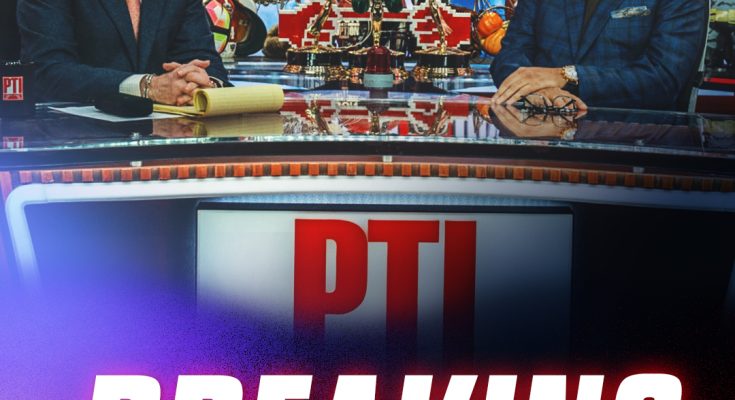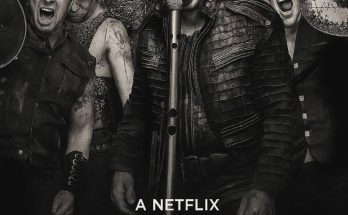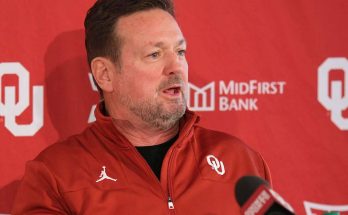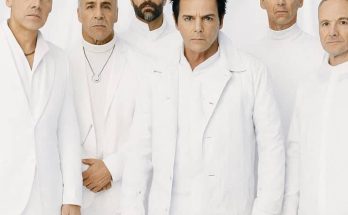In a media landscape increasingly defined by rapid turnover, streaming wars, and the decline of traditional television, it’s remarkable when any show manages to maintain relevance year after year, let alone for more than two decades. And yet, on September 10, 2025, ESPN made it clear that some institutions are too valuable to let go. The network has signed Tony Kornheiser and Michael Wilbon to new three-year contracts, ensuring that Pardon The Interruption — better known as PTI — will remain a staple of its programming through at least 2028. This move not only affirms the show’s enduring popularity but also reflects ESPN’s strategic commitment to keeping its most recognizable and trusted voices on the air in an era of increasing fragmentation.
The news of the contract extension was first reported by The Athletic and quickly confirmed by ESPN. For fans of the show, this development came as a welcome relief following months of speculation about the show’s future. That speculation had only intensified after the cancellation of ESPN’s other long-running afternoon program, Around the Horn, earlier this year. The end of that show, which had followed PTI in the afternoon lineup since its debut in 2002, raised legitimate questions about whether PTI might be next on the chopping block. But instead of winding down, ESPN is doubling down, placing its confidence in Kornheiser and Wilbon, the duo whose chemistry, insight, and humor have made PTI one of the most beloved sports shows of all time.
This new contract ensures that PTI will reach and likely surpass its 25th anniversary in October 2026, an extraordinary milestone in television, especially for a daily studio program. Since its debut on October 22, 2001, PTI has managed to evolve with the times while staying true to its format: two longtime friends and former Washington Post columnists engaging in quick-hitting discussions, heated debates, and playful banter on the top sports stories of the day. Over the years, the show’s format — the timed segments, the rundown graphic, the “Stat Boy” fact-checks, and the “Happy Time” segment — became iconic and often imitated, but never duplicated. What has always set PTI apart is the irreplaceable dynamic between Kornheiser and Wilbon, whose decades-long friendship has created a level of comfort, candor, and authenticity that’s rare in any form of broadcasting.
That relationship has become the backbone of the show’s longevity. Viewers don’t just tune in for the sports takes; they come back every day because it feels like checking in on two old friends. Whether Kornheiser is grumbling about analytics or Wilbon is passionately defending an NBA star, there’s a warmth and rhythm to their interactions that’s impossible to script. They don’t just disagree; they respect each other while doing it. That balance — opinionated but not toxic, informative but entertaining — has allowed PTI to survive in a media ecosystem where shows are increasingly driven by hot takes and controversy.
Despite its age, PTI remains remarkably relevant. According to ESPN, the show continues to be its most-watched daily studio program, regularly drawing around a million viewers per episode. In a time when cable viewership is declining and streaming platforms dominate the landscape, those numbers speak volumes. They also reflect the show’s reach across platforms. PTI isn’t just a television show anymore — it’s also one of ESPN’s top podcasts, and clips frequently circulate on social media, introducing the format to younger audiences who might not even watch cable TV. This cross-generational appeal is something ESPN cannot afford to lose, especially as it grapples with its identity in a post-cable world.
The timing of this extension also aligns with ESPN’s broader strategy of streamlining its programming and focusing on its core strengths. Over the past few years, ESPN has faced significant internal changes, including budget cuts, talent layoffs, and shifting programming priorities. Many legacy shows have been trimmed or eliminated altogether, and some longtime personalities have either moved on or been moved out. Yet amid all that upheaval, PTI remains standing — and thriving. That’s no accident. The show offers ESPN something it can’t easily replicate: a trusted brand with two uniquely credible hosts who transcend sports genres. Kornheiser and Wilbon aren’t just media personalities; they’re journalists with decades of experience, insiders with industry respect, and commentators who aren’t afraid to call things as they see them, regardless of league affiliations or corporate interests.
This new deal also keeps both hosts involved in other areas of ESPN’s programming. Wilbon will continue to contribute to ESPN’s NBA coverage, a role he’s held for years and in which he brings both reporting chops and sharp perspective. He’s regularly seen courtside, in locker rooms, and conducting interviews with some of the NBA’s biggest stars. Kornheiser, while less publicly visible outside of PTI, continues to make waves through his podcast and guest appearances, and his role on SportsCenter’s 6 p.m. edition — along with Wilbon — will continue as part of the new deal. These daily SportsCenter segments serve as an extension of PTI’s brand and offer viewers an additional dose of the duo’s analysis.
For ESPN, retaining PTI and its hosts is a rare win in a period of transition. The network has recently shifted to simulcasting more of its content across ESPN+, ABC, and streaming platforms, and as it prepares for its direct-to-consumer future — the long-rumored “ESPN Prime” service expected within the next couple years — content like PTI becomes all the more valuable. It is already proven, scalable across formats, and carries with it a loyal audience base that could help drive adoption of new products. Keeping Kornheiser and Wilbon on board ensures continuity, which is exactly what ESPN needs as it pivots to whatever comes next.
The extension also offers a bit of poetic symmetry. When PTI was launched in 2001, the idea was relatively radical — a fast-paced, personality-driven debate show where the hosts weren’t just talking heads but longtime friends with real chemistry. At the time, there was no blueprint for what PTI would become. Two decades later, it helped define an entire genre. Countless imitators followed: First Take, Undisputed, Speak, and many others adopted elements of the PTI format, from segment-based timing to point-counterpoint structure. Yet PTI has always stood apart because it was never just about noise; it was about substance, delivered with humor and humanity.
Now, with three more years guaranteed, the show has an opportunity to celebrate its legacy while continuing to shape the conversation. That celebration is likely to kick into high gear as the 25th anniversary approaches in 2026. It’s easy to imagine retrospective specials, tributes, and even more behind-the-scenes insights into what has made the show so successful. But for now, the most important thing is that PTI isn’t going anywhere. For at least three more years, sports fans can count on that familiar music, that rundown on the side of the screen, and that playful back-and-forth between two of the best in the business.
Of course, questions about the future will linger. Kornheiser is now 77 years old; Wilbon is 66. Neither man has hidden his awareness that the show’s run won’t last forever. Kornheiser in particular has often joked on-air about retirement, health, and the grind of doing a daily show. Wilbon, too, has suggested in interviews that the end is closer than the beginning. But whatever personal timelines they’re working on, the new contract makes one thing clear: ESPN still wants them, and the audience still shows up. That’s a powerful combination.
It’s also worth noting what this extension means for the broader media industry. In an environment where flashy new content often fails to make an impact, where sports debate has become more spectacle than insight, PTI’s survival is almost a quiet protest against the noise. It proves that viewers still value smart, thoughtful, and entertaining conversations — especially when they come from voices they trust. It suggests that legacy doesn’t have to mean outdated. And it shows that substance, when paired with charisma and consistency, can still win the day.
In the end, the extension of Pardon The Interruption is more than just a business decision or a programming update. It’s a reaffirmation of a show that has brought daily joy, insight, and laughter to millions of people for nearly a quarter-century. It’s a recognition of two journalists who turned a half-hour of debate into a cultural touchstone. And it’s a rare piece of good news in a media world often defined by cuts, cancellations, and chaos. For Kornheiser, Wilbon, ESPN, and the viewers at home, this is a victory — not just for now, but for the next three years and beyond.



